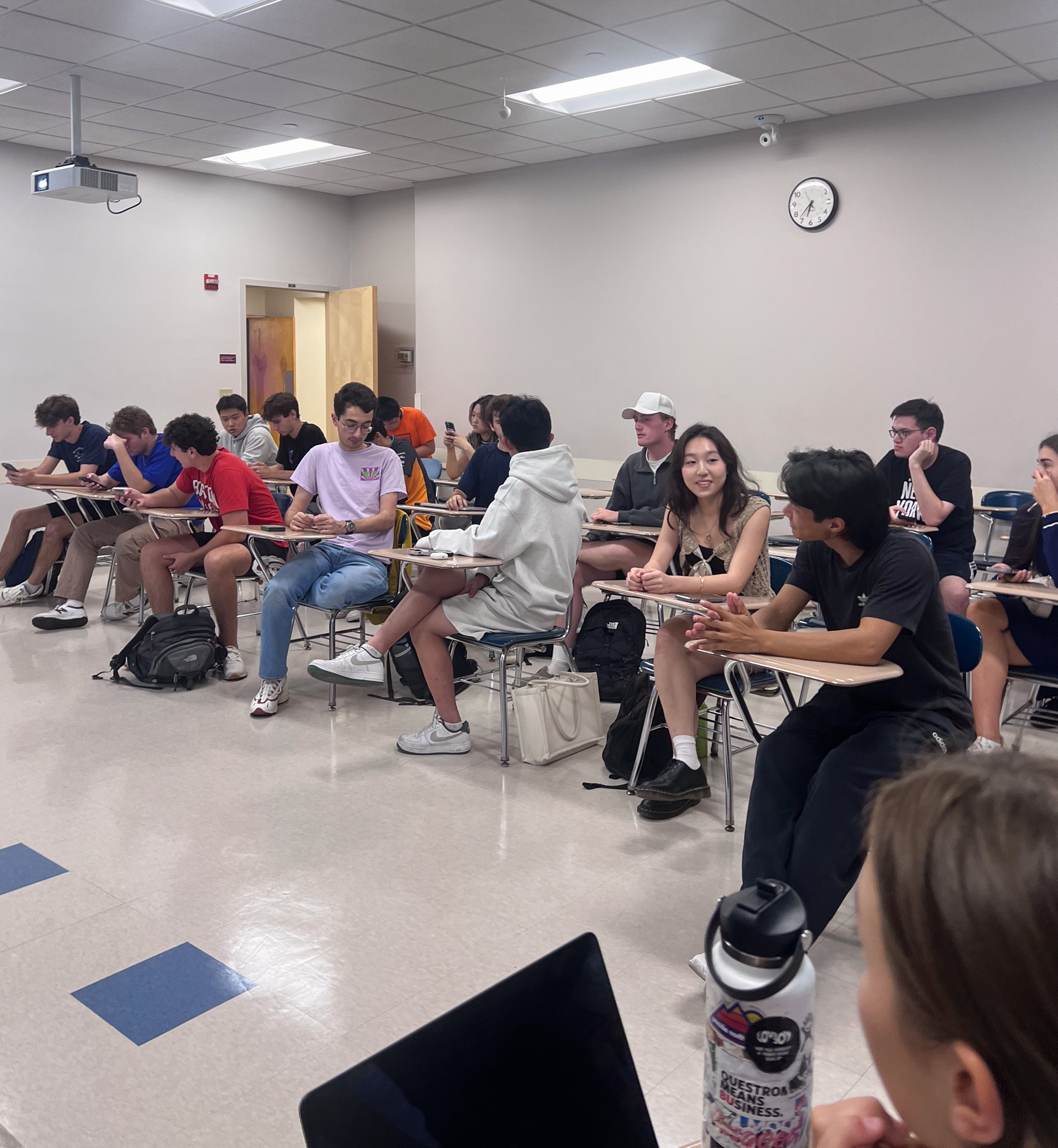Last year, as a freshman in the Questrom School of Business, Shelly Shan was encouraged by Questrom Professor Richard Stuebi to organize a club to educate her fellow students on sustainable energy.
Questrom freshmen Zach Sugerman and Ben Starr had a similar idea.

The pair said they noticed that although both the BU administration and student body seem to heavily emphasize sustainability, there were no clubs that focused explicitly on sustainable business.
The students found each other, and over the course of six months, the two separate groups were able to merge clubs into one — now known as the BU Sustainable Business Club, Stuebi said.
“There’s a stereotype of the greedy, profit, corporate people that nobody likes, right?” said Grace Robbins, the club’s secretary. “Being in Questrom, we’re trying to break that stigma.”
This year, the curriculum for QST SM-131: Business, Ethics and the Creation of Value, was changed to remove the unit on sustainability and environmental social and governance, which is a way to evaluate companies when investing.
“Besides [looking] at a company’s financial performance, you also look at whether they are friendly to the environment, whether they have good governance inside of the company and also whether they’re doing good to society,” Shan, vice president of the club, said.
Sugerman said one of the club’s “core value[s]” is the so-called triple bottom line: people, profit and planet. Sustainable businesses work to balance the three goals without emphasizing one over the other, he said.
The club used its first meeting, held on Sept. 17, to fill in the gaps of information that will no longer be included in the SM131 curriculum, Rahul Vasudev, a sophomore in Questrom said.
After its first SPLASH club fair, the club had more than 120 sign-ups, Sugerman said. It went on to gain more interest at the Questrom Club Fair.
The club’s first meeting attracted both under- and upper-classmen, rather than only freshmen, which Starr said he found promising.
The club is not Questrom-specific and encourages students from all majors to attend future meetings, Sugerman said.
“One of the big goals we have is to incorporate everyone from all different parts of campus,” Sugerman said. “We’re actively looking for STEM majors or policy majors or international relations majors.”
Stuebi echoed this sentiment, and said sustainability is a universally important goal for all sectors of society.
To Stuebi, sustainability encompasses “the ability to serve the needs of today’s generation without compromising the ability to serve the needs of future generations.”
The co-presidents said they plan to introduce a variety of opportunities for learning more about sustainability, including guest speakers and field trips to a local solar plant.
“We view our club as sort of like a class without any homework,” Starr said. “We want people to learn, but we don’t want to be a drag and we don’t want it to be boring.”
Because the club is brand-new, its main goal is still primarily to gain more members, Robbins said.
But all that change takes one step at a time.
“In many respects, almost every organized human activity has a business aspect to it, even if it’s not a for-profit institution or organization.” Stuebi said. “Over the next few decades, almost everything that we do in this world, every aspect of society, every aspect of the economy will have to change pretty considerably.”



























































































































